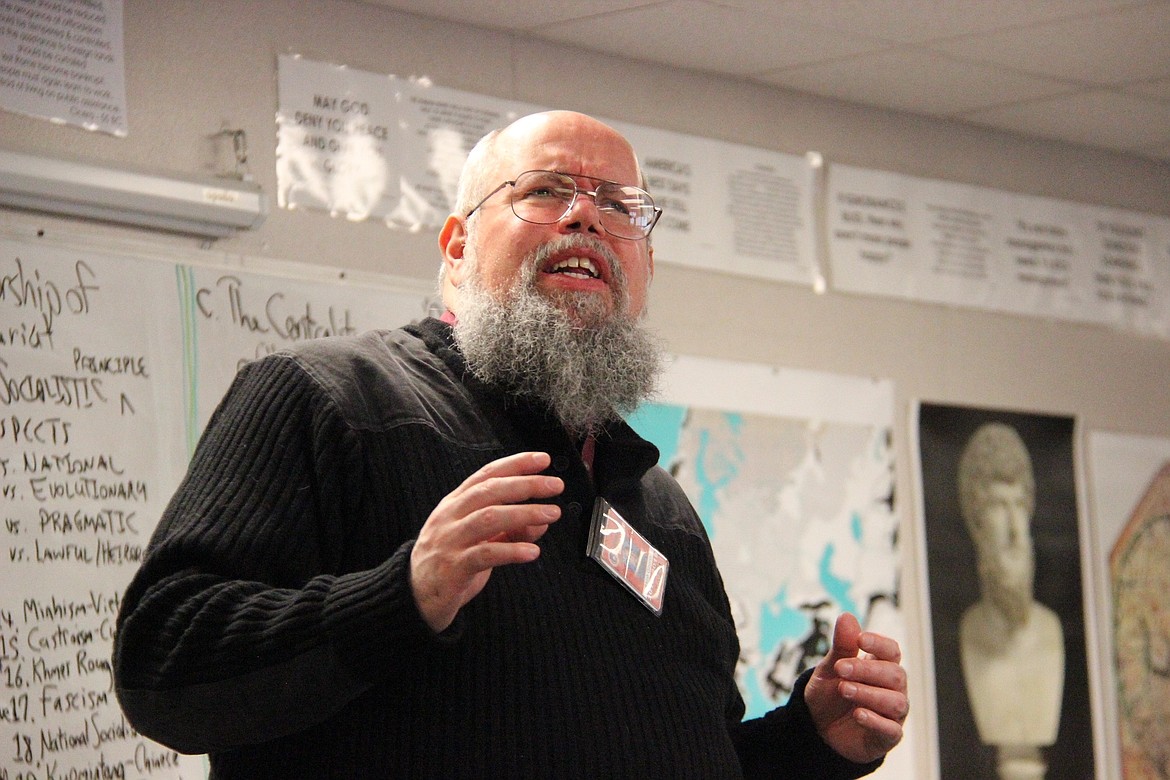Op-Ed: North Idaho College: Cultural battleground, Part 1
Colleges and universities were captured by a shared unitary viewpoint generations ago. Since at least the 1980s, Leftist administrators, professors and student-activists have turned what should be the most open intellectual environments into ideological Gulags.
At Bates College in the mid-1980s, I was targeted as a race-traitor by those self-described as being the most racially tolerant because I was and am an openly Conservative Hispanic. My wife was publicly derided as a traitor to her sex by self-described feminists for being an openly traditional and conservative woman, and for being with someone like me.
A few years ago, my niece was surrounded after class by a group of fellow students at the College of Wooster who shouted, “We hope you burn!” while a smiling professor looked on. Her crime, speaking an openly Libertarian position in a discussion during a history class. She quickly found another school, but could not find another school culture.
These anecdotes are typical of my half-century of experience with education as both a student and as an educator. More and more, the genuinely open exploration of ideas has been eclipsed by an ideological lockstep. Increasingly, schools stopped telling students how to think to instead tell them what to think.
This is a betrayal of the fundamental mission of any college or university. Back when they were first founded in Europe’s Middle Ages, universities were walled off from the rest of their cities. Like contemporary Jewish Ghettoes, which were also sealed away from the rest of the population, universities were intended to keep quarantined what leaders saw as both necessary and dangerous.
Late Medieval and Early Modern Europe suffered from repeated peasant uprisings. In the Albigensian Crusade, the Hussite Wars and German Peasant Uprisings sparked unintentionally by Martin Luther, reformist ideas within an elite had spread to the wider populace. The result was always the same. Inchoate rage among commoners misinterpreted reform to mean, “Eat the Rich!”
These revolts shook society to their core. They were among the bloodiest of Medieval wars. Rightly or wrongly, leaders of both church and state determined to control creativity and keep unfiltered innovation from affecting the daily life of common people. This, they calculated, would prevent society from self-immolation.
However, just as Jews were needed as bankers in a Christian Europe that still defined usury (the loaning of money at interest) as a mortal sin, leaders understood that there needed to be a place where the elite’s intellectual faculties could be honed to the benefit of all.
Thus, the unbridled creativity that spawned the open discussion of dangerous ideas was cloistered away from outsiders. Sealed within their walls, collegiates could reconsider notions about church and state which would result in execution elsewhere. Scholars could correspond with peers elsewhere in Latin without spreading them to the general population.
Universities were then the most free-thinking element within Western Civilization. They contributed mightily to our rich intellectual heritage, which unique among human societies built functional popular government, inalienable human rights, and scientific discoveries that brought Westerners around the world and from the Earth to the moon.
However, throughout the Western world in the 1960s, the rising baby-boom generation protested to replace tradition with counter-culture. By the late-1980s, these “New Left” Boomers had captured elite colleges and universities. Their ideas have since spread to the rest of education, suppressing all dissenting viewpoints.
Fairly or unfairly, North Idaho College has been caught up in a broader struggle to force colleges, if necessary against their institutional will, to restore intellectual freedom to higher education.
• • •
In Maine and then Idaho, Ralph K. Ginorio has taught the history of Western Civilization to high school students for nearly a quarter century. He is an “out-of-the-closet” Conservative educator with experience in special education, public schools and charter schools, grades 6-12. He has lived in Coeur d’Alene since 2014. Email: rginorio@cdapress.com

